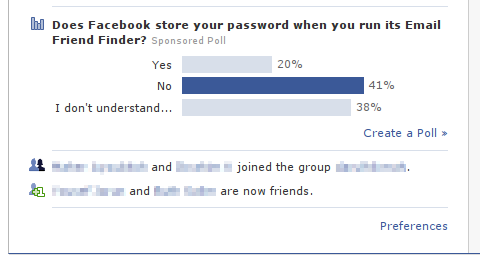There’s a screenshot that’s been sitting on my desktop for a rather long time now, and it’s as scary as it is interesting.
Facebook recently conducted a poll which showed up on the homepage newsfeed, and asked Facebook members just how exactly did they think Facebook’s “friend finder” worked when it prompted them for their email address & password in order to get a list of contacts. The numbers pretty much speak for themselves, here’s what they looked like near the end of the campaign:

Now ignore the dark blue bar: it’s a red herring and doesn’t contain any interesting info. The real juicy bit is the “Yes” option, and its 20% response.

 Back in August of 2007, NeoSmart Technologies released iReboot 1.0 – a tiny application that sits quietly and unobtrusively in the taskbar and is used to select which OS you’d like to reboot into.
Back in August of 2007, NeoSmart Technologies released iReboot 1.0 – a tiny application that sits quietly and unobtrusively in the taskbar and is used to select which OS you’d like to reboot into.